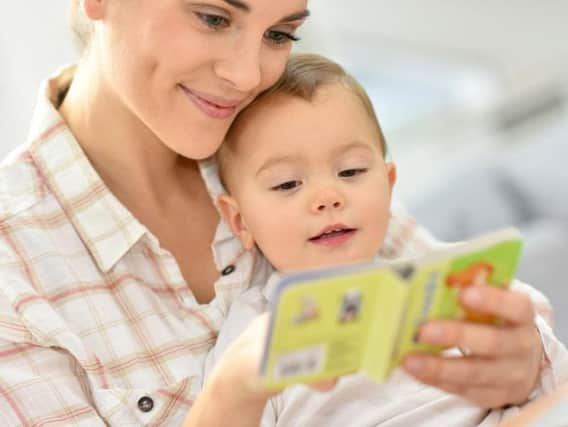Reading to babies gives them a head start in literacy


A bedtime story from the age of six months really does give a child ahead start four years later by giving them a lasting literacy boost.
Children from an early age who were read to a lot and with quality books were able to write their own name and read by themselves by the age of four-and-a-half.
Advertisement
Hide AdAdvertisement
Hide AdResearch assistant professor Dr Carolyn Cates at New York University School of Medicine said: "These findings are exciting because they suggest that reading to young children, beginning even in early infancy, has a lasting effect on language, literacy and early reading skills
"What they're learning when you read with them as infants still has an effect four years later when they're about to begin elementary school."
She added "While it is generally accepted that shared reading is critical for language and literacy acquisition, links between early reading and these outcomes is not always clear with regard to aspects of bookreading, for example quantity or quality important for their development."
The study monitored 250 mothers and newborns at a US public hospital who were followed from six months to the age of four-and-a-half.
Advertisement
Hide AdAdvertisement
Hide AdThe children were assessed on how well they could understand words, and for early literacy and reading skills at the age of age six 14, 24, and 54 months.
The findings were compared with the quantity of shared book-reading, such as the number of books in the home and days per week spent reading together.
Quality of shared book-reading was gauged by asking whether parents had conversations with their child about the book while reading, whether they talked about or labelled the pictures and the emotions of the characters in the book and whether the stories were age-appropriate.
Adjusting for socioeconomic differences, it was found reading quality and quantity of shared book-reading in early infancy and as a toddler predicted child vocabulary up to four years later.
Advertisement
Hide AdAdvertisement
Hide AdBook-reading quality during early infancy, in particular, predicted early reading skills while book-reading quantity and quality during toddler years appeared strongly tied to later emergent literacy skills, such as name-writing at age four.
For example at six months bookreading quantity and quality predicted expressive vocabulary at 54 months.
Bookreading quality at six months also predicted early reading at 54 months and was associated with a trend in increased receptive vocabulary.
At 14 months bookreading quality and quantity robustly predicted receptive vocabulary and were associated with trends in increased expressive vocabulary.
Advertisement
Hide AdAdvertisement
Hide AdBookreading quality further predicted name writing, beginning sound awareness and early reading while bookreading quantity was associated with trends in enhanced beginning sound awareness.
At 24 months bookreading quality and quantity robustly predicted expressive and receptive language and predicted beginning sound awareness and early reading.
Bookreading quantity also predicted name writing and print/word awareness.
Prof Cates concluded: "The findings suggest shared reading, beginning early in infancy and in toddlerhood are critical for key language and literacy outcomes as much as four years later."
Advertisement
Hide AdAdvertisement
Hide AdShe added the study strongly support preventive programmes in paediatric primary care aiming to enhance early shared reading between parents and children.
The findings were presented at the 2017 Pediatric Academic Societies Meeting in San Francisco.